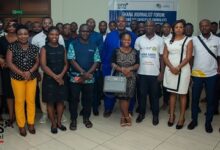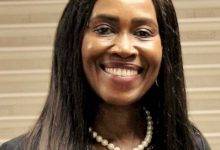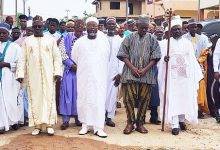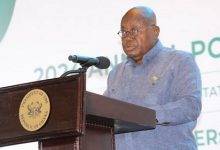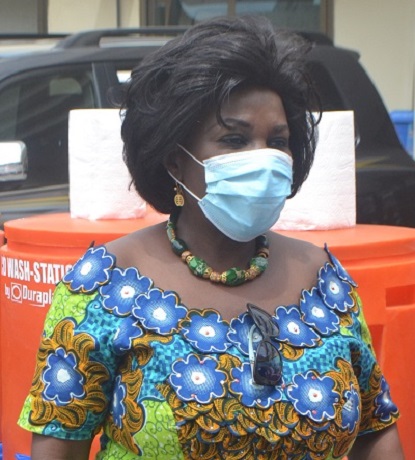
The Ministry of Sanitation and Water Resources has called on Ghanaians to support efforts to preserve and conserve Ghana’s water resources to spur realisation of water-related sustainable development goals (SDGs).
Among these efforts, according to the Minister of Sanitation and Water Resources, Cecilia Abena Dapaah, is renewed partnership with all stakeholders, including traditional authorities and increased government support for agencies responsible for the management of water resources.
“These water bodies are for our own survival and that of future generations. It is our duty to protect them. People should not dump rubbish or defecate into water bodies. We must not pollute or contaminate them as well through nefarious activities such as illegal mining (galamsey). We will work actively with all stakeholders to preserve and conserve our water resources,” she stated.
The Minister was speaking at a ceremony in Accra yesterday to inaugurate the newly appointed Chairman of the Water Resources Commission, Minta Afosa Aboagye.
Currently, she said Ghana was using only about 14 per cent of the 53.2 billion cubic metres of surface water in the country, adding that it was the responsibility of all “Ghanaians to act as proper custodians of the water resources.”
She said government had adopted an aggressive strategy, which included development of water projects in remote communities to ensure portable water accessibility across the country.
“Recently, the President commissioned water projects for 146 communities in the Central Region, another project in Volta Region is in the pipeline to cater for 183 communities. We will afterwards move up north to undertake water projects for the new regional capitals: Damango water, Yendi water, among others,” she noted.
Madam Dapaah stated that the fight for clean water bodies was the responsibility of all citizens and “we must all ensure that no one builds on waterways, no one defecates in water bodies, no one engages in illegal mining on water bodies and stop and prevent others from polluting water bodies too.”
On his part, Mr Aboagye admitted that the challenges facing the conservation of water resources in the country were enormous due to years of pollution and contamination by both activities of individuals and industries.
He said the Commission was realigning its strategy to include collaborations with technocrats, Metropolitan, Municipal and District Assemblies (MMDAs), Non-Governmental organisations (NGOs) and traditional rulers to enforce laws on water resources conservation.
He stated that the Commission would further promote sustainable use of water to ensure continuous access during dry seasons.
BY CLAUDE NYARKO ADAMS


